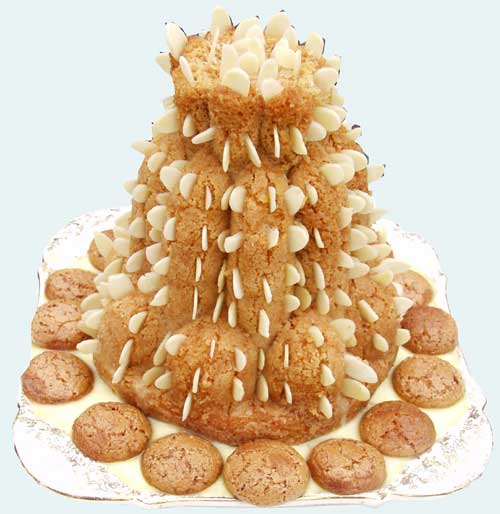For the more ordinary households, the most popular cookery books of the day were written by women: Eliza Smith,1727; Hannah Glasse, 1747; and Elizabeth Raffald,1769. Hanna's wildly popular book was reprinted 17 times between 1747 and 1803! In those days, the authors borrowed recipes liberally from each other, but Mrs. Glasse's recipes were more detailed and clearly written than most. "I have attempted a Branch of Cookery which Nobody has yet thought worth their while to write upon...My Intention is to instruct the lower Sort [so that] every servant who can read will be capable of making a tolerable good Cook."

Reading Hannah's recipes, we can see how much our tastes in food have changed. Her Cookery Book included recipes for Jugged Pigeons,Potted Venison, Fried Celery, Tipsy Cake (depicted above), and Salamangundy (a salad made with cucucumber, apples, grapes, herring, red cabbage, hard boiled eggs, and cooked fowl.)As to how the food of the day tasted, here are Jane Austen's words, scribbled to Cassandra in 1808:
"The Widgeon and the preserved ginger were as delicious as one could wish. But as to our black butter, do not decoy anybody to Southampton by such a lure, for it is all gone ..."
From Food: and Cooking in 18th Century Britain: History and Recipes, Jennifer Snead, English Heritage, ISBN 1 85074 084 4

No comments:
Post a Comment